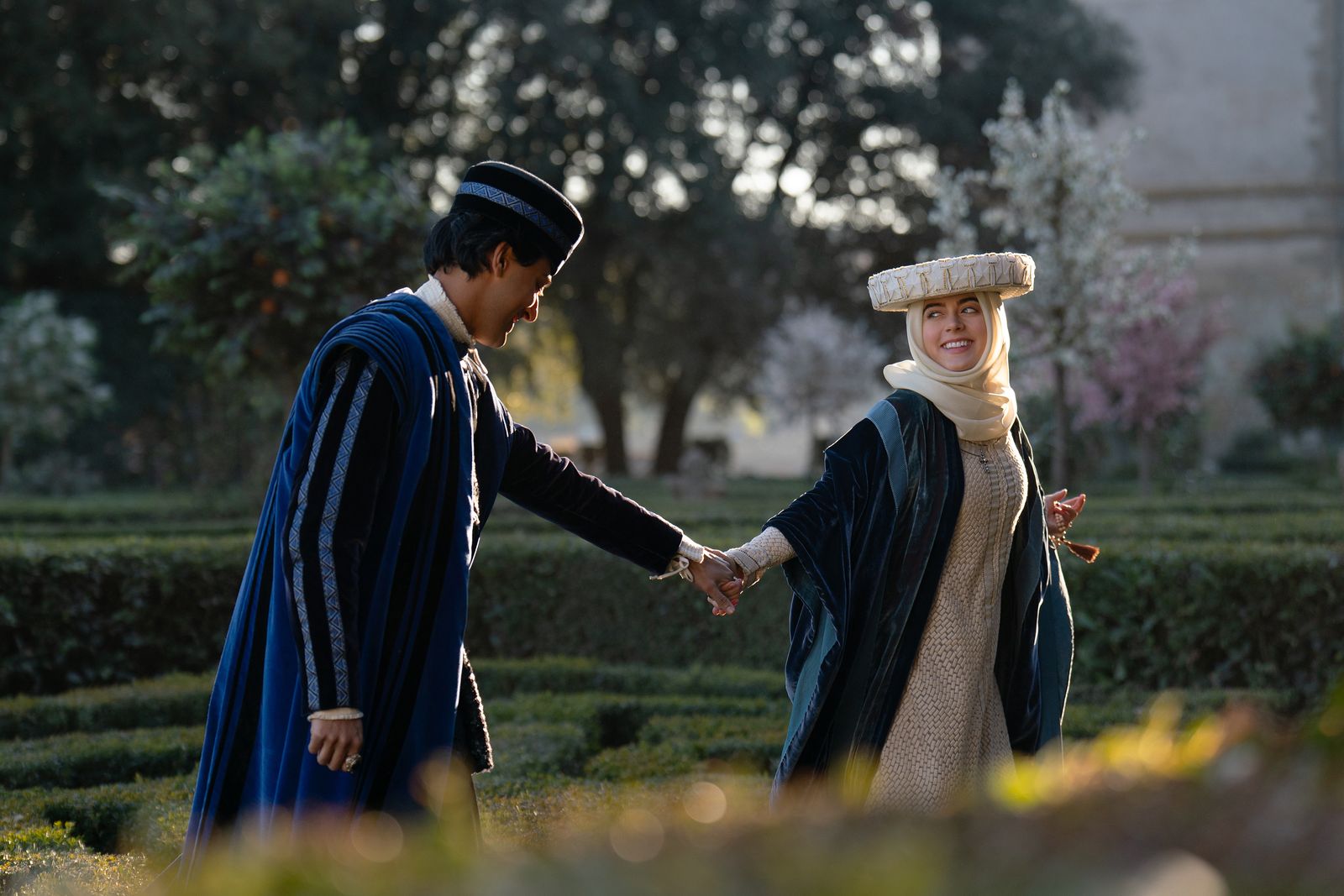The Kite Runner's Moral Choices In A Nigerian Context: A Comparative Analysis

Table of Contents
Amir's Moral Failures and their Nigerian Parallels
Amir's journey in The Kite Runner is marked by significant moral failures, primarily his betrayal of Hassan, his childhood friend. This act casts a long shadow over his life, prompting a lifelong struggle with guilt and a quest for redemption. Examining these failures through a Nigerian lens reveals intriguing parallels and contrasts.
Betrayal and Friendship
Amir's betrayal stems from cowardice and a prioritization of self-preservation over loyalty. He witnesses Hassan's assault and chooses silence, an act that shatters their friendship and deeply wounds Hassan. This betrayal resonates within Nigerian social structures, where loyalty and kinship ties are paramount.
- In The Kite Runner: Amir's betrayal is rooted in his fear of social repercussions within the complex power dynamics of Afghan society. His silence perpetuates injustice.
- In Nigerian Society: Similar betrayals can occur within the context of familial obligations and tribal loyalties. Societal pressures might compel individuals to prioritize family or community interests over personal conscience, potentially mirroring Amir's choices. Consider the pressure to protect family reputation, even at the expense of justice.
Guilt and Redemption
Amir's subsequent life is consumed by guilt over his betrayal. His eventual path to redemption involves confronting his past and making amends. This journey towards atonement mirrors the Nigerian cultural understanding of seeking forgiveness and reconciliation.
- In The Kite Runner: Amir's redemption involves taking responsibility for his actions and actively working to repair the harm he caused.
- In Nigerian Society: Traditional Nigerian methods of seeking forgiveness often involve community involvement, restitution, and religious practices. Whether Christian, Muslim, or adhering to traditional beliefs, the path to redemption often involves seeking forgiveness from both God and the affected parties. The concept of restorative justice plays a significant role in reconciliation.
Cultural Differences in Moral Frameworks
A key aspect of this comparative analysis involves understanding the differing moral frameworks that shape the characters' actions and consequences.
Collective vs. Individualistic Morality
The Kite Runner showcases the collectivist nature of Afghan culture, emphasizing family honor and social hierarchy. This contrasts with the varying degrees of individualism and collectivism found within diverse Nigerian communities.
- In The Kite Runner: Family honor, social standing, and adherence to patriarchal structures heavily influence moral decision-making.
- In Nigerian Communities: While many Nigerian communities maintain strong collectivist values centered around extended family structures and communal responsibility, there’s also a spectrum of individualism expressed depending on factors like ethnicity, religion, and socio-economic status. The importance of communal harmony often outweighs individual desires.
The Role of Religion and Tradition
Religion and tradition play significant roles in shaping moral values and choices in both Afghan and Nigerian societies.
- In The Kite Runner: Islamic teachings on justice, compassion, and forgiveness are interwoven into the narrative, though their interpretation and application vary among characters.
- In Nigeria: The interplay between Islam and Christianity, alongside indigenous traditional beliefs, creates a rich and diverse tapestry of moral values. Different religious and traditional practices offer different perspectives on forgiveness, redemption, and social responsibility, influencing how individuals might interpret Amir's actions and their consequences.
Interpreting Moral Ambiguity in a Nigerian Context
The Kite Runner presents moral choices that are not always clear-cut. This moral ambiguity takes on different dimensions when examined through a Nigerian lens.
The Complexity of Moral Choices
Many of Amir's choices are ethically complex. His betrayal of Hassan, for instance, isn’t a simple act of evil but a consequence of fear and societal pressures.
- In The Kite Runner: The novel explores the blurred lines between right and wrong, challenging the reader to grapple with moral gray areas.
- In Nigerian Perspectives: Different Nigerian communities, with their varied cultural norms and religious beliefs, might interpret these ambiguous choices differently, leading to diverse perspectives on Amir's guilt and his eventual path to redemption. For instance, the weight given to familial honor versus individual responsibility may differ significantly.
The Power of Narrative and its Cross-Cultural Impact
Despite its specific cultural context, The Kite Runner possesses a universal appeal, prompting discussions about morality transcending geographical boundaries.
- In The Kite Runner: The themes of guilt, redemption, and friendship resonate deeply with readers across diverse cultures.
- In Cultural Reception: The novel's power lies in its ability to provoke introspection on fundamental human experiences, even while acknowledging the specific nuances of its reception within different cultural frameworks. The discussion of betrayal, for example, is a universal theme, although its context and interpretation may differ greatly.
Conclusion: Key Takeaways and Call to Action
This comparative analysis of The Kite Runner's moral choices within a Nigerian context reveals fascinating parallels and divergences in how societies define and navigate ethical dilemmas. The interplay between collectivism and individualism, the influence of religious and traditional beliefs, and the interpretation of moral ambiguity highlight the importance of cross-cultural analysis in enriching our understanding of complex moral issues.
We've seen how Amir's journey, marked by betrayal and redemption, resonates with Nigerian cultural concepts of guilt, forgiveness, and restorative justice, while also highlighting the unique ways in which societal pressures and cultural norms shape individual choices. The power of Hosseini's narrative lies in its ability to spark meaningful conversations about morality regardless of cultural background.
Continue the conversation by exploring how other novels tackle similar themes within diverse cultural contexts. Share your thoughts on The Kite Runner's moral complexities as they relate to your own cultural understanding. Further research into the intersection of literature, cultural studies, and ethics will offer a deeper understanding of the cross-cultural relevance of The Kite Runner's moral choices.

Featured Posts
-
 Technologies Spatiales Le Marche Africain Des Solutions Spatiales Mass Lance Sa Premiere Edition A Abidjan
May 20, 2025
Technologies Spatiales Le Marche Africain Des Solutions Spatiales Mass Lance Sa Premiere Edition A Abidjan
May 20, 2025 -
 To Epomeno Epeisodio Toy Tampoy I Marilena Thyma Epithesis Me Maxairi
May 20, 2025
To Epomeno Epeisodio Toy Tampoy I Marilena Thyma Epithesis Me Maxairi
May 20, 2025 -
 Lou Gala Exploring The Success Of The Decamerons Breakout Star
May 20, 2025
Lou Gala Exploring The Success Of The Decamerons Breakout Star
May 20, 2025 -
 Cote D Ivoire Port Autonome D Abidjan Paa Trafic Record En 2022
May 20, 2025
Cote D Ivoire Port Autonome D Abidjan Paa Trafic Record En 2022
May 20, 2025 -
 Agatha Christie A New Bbc Resurrection
May 20, 2025
Agatha Christie A New Bbc Resurrection
May 20, 2025
